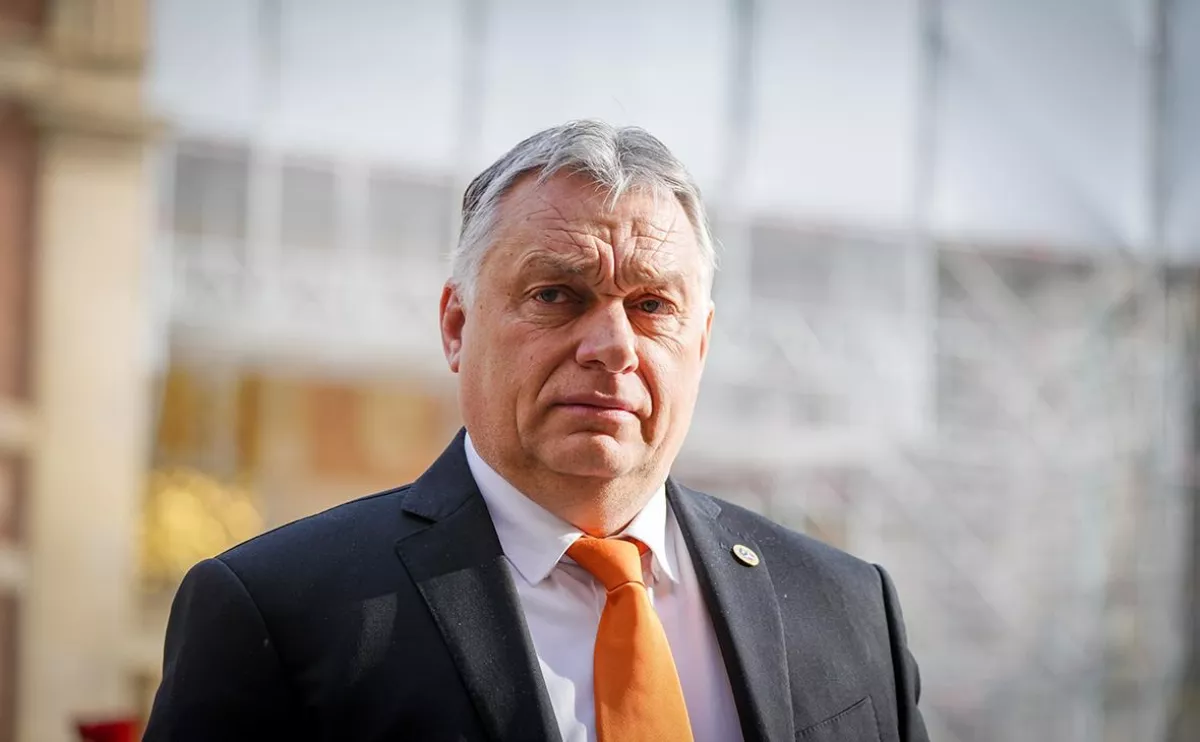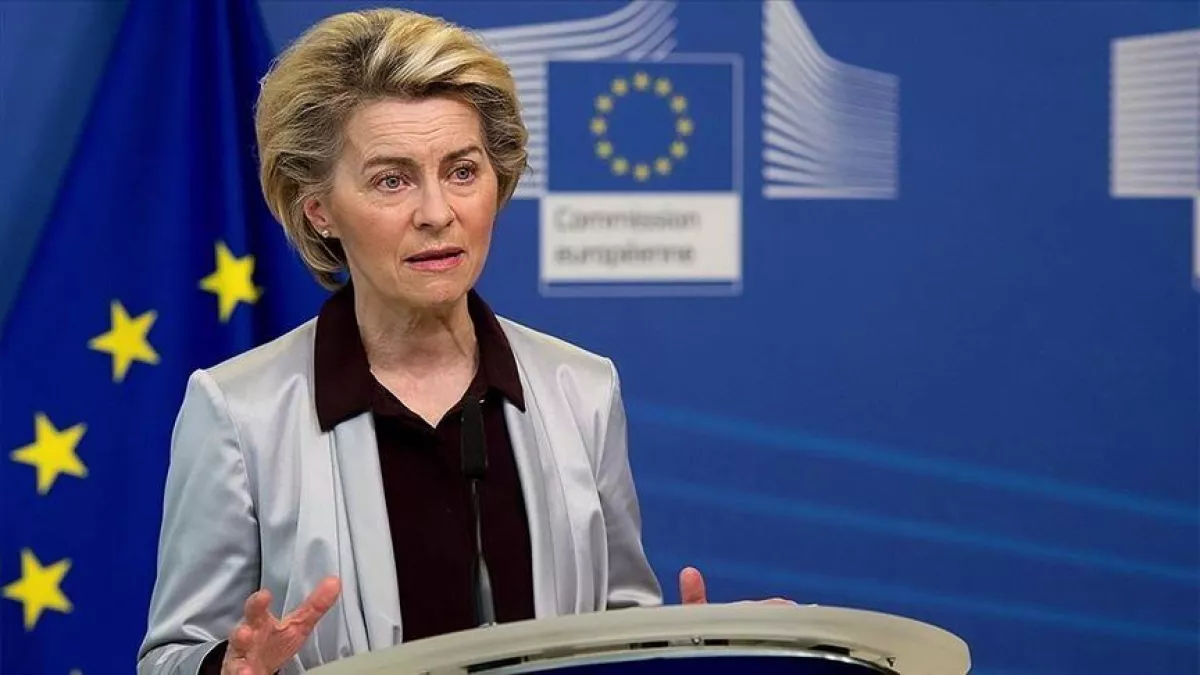Italian, Hungarian PMs challenge Euro-Atlantic leaders with bold diplomatic moves Rising tensions in EU
The recent move by Italian Prime Minister Giorgia Meloni, which can be seen as a bold challenge to Euro-Atlantic leaders, has drawn significant attention.
Under the guise of seemingly valid reasons, she declined to participate in the meeting scheduled for October 18 among US President Joe Biden, German Chancellor Olaf Scholz, UK’s Prime Minister Keir Starmer, and French President Emmanuel Macron.
This decision has dealt a serious blow to the reputations of these political figures, highlighting shifting dynamics within international alliances.
Hungarian Prime Minister Viktor Orbán also expressed a similar stance. While he has often been noted for such positions in the past, this time his remarks were particularly strong and pointed.
In particular, Orbán announced Budapest's refusal to engage in any war, reaffirmed the lack of plans to reverse decisions regarding gas supplies, and outlined a new approach to migration issues.
His statement—"Don’t let the Germans tell us what to do!"—created a stir on social media, highlighting his defiance against external pressure. Amid the Hungarian prime minister's initial emphasis, the discussion centred on the situation surrounding Ukrainian President Volodymyr Zelenskyy's "Victory Plan," which was proposed during the recently concluded EU summit on October 18.
Orbán specified that Kyiv's vision "cannot lead to victory," and Hungary, in general, "has not participated and does not intend to participate in the war." In this context, he described the idea of "not going to war, reaching a ceasefire, and ending the conflict" as positive. "Everyone has a military strategy," Orbán concluded, "but we have a strategy for peace."
Accompanying the prime minister in Brussels, his political advisor and namesake, Balázs Orbán, deemed the "escalation of military actions involving NATO member states" as "unacceptable for Hungary."

Many analysts believe that the position articulated by the Hungarian government serves as a kind of indirect continuation of the debates that took place between them and European Commission President Ursula von der Leyen on October 9 during a session of the European Parliament. Orbán characterized the EU's approach to the Russia-Ukraine war as a "poorly planned and poorly executed" strategy. "If we want to win," he emphasized, "we need to change this losing strategy." In response, von der Leyen referred to Ukraine as a "priority for the EU" and highlighted the ongoing need for political, financial, and military support for Kyiv.
However, ahead of the EU summit, Viktor Orbán, through his advisor, notably emphasised that "the overwhelming majority of the Hungarian population desires peace and wants this stance to be represented at all levels of the EU." Therefore, Viktor Orbán's response to Zelenskyy's "Victory Plan" was entirely anticipated, just as was the expected round of anti-Hungarian criticism from EU leaders. However, it seems that Orbán is prepared for such developments and is capable of standing his ground, as evidenced by his sharp debates with von der Leyen in the European Parliament. In the aftermath of those discussions, the prime minister emphasised that those present that day were seeking not substantive debates, but rather "our blood through political upheaval and attacks against us."
He then accused EU leadership of attempting to "overthrow the legitimate Hungarian government." However, observers note that Hungary did not yield to any threats. Politico reported on October 14 that Budapest has planned to block a 50-euro-billion loan derived from frozen Russian assets for Ukraine.
This decision, lobbied by Washington and Brussels and agreed upon by G-7 leaders back in June 2024, aims to ensure that if Donald Trump is re-elected US president, he will not have any obligations regarding this loan. Politico described Hungary's actions as a "significant political gift" from Orbán to his "best friend," as blocking the funds before the US elections would help Trump, if victorious, to navigate around the 50-euro-billion loan, reassuring voters of his commitment to "cutting off funding for Ukraine."
As a result, at the EU summit, Hungary successfully postponed the extension of the standard sanctions period on frozen Russian assets from six months to three years. Analysts emphasise that Orbán "followed through on his threat to delay this issue until the US elections," undeterred by any appeals from EU leaders in Brussels.
Orbán stated that "a potential victory for Trump in the November 5 elections would benefit the EU, even if it may not be the ideal economic scenario for Europe." Regarding the anti-German undertones in Orbán's statement cited at the beginning of this article, it's evident that the direction of his remarks was intentional and not coincidental. On October 3, the Hungarian Foreign Ministry summoned German Ambassador Julia Gross.
According to Hungary's Minister of Foreign Affairs and Trade Péter Szijjártó, her remarks during a speech to diplomats, representatives of the non-governmental organisations (NGOs), and Hungarian officials on the occasion of Germany's Unity Day amounted to a serious interference in Hungary's internal affairs, thereby violating its sovereignty.
This referred to Gross's comments about the "undermining of Budapest's mission to establish peace in Ukraine and the trust of EU and NATO allies," which Szijjártó described as "completely unacceptable." Some experts believe that the "German backdrop" of Orbán's critical remarks is influenced by the fact that Ursula von der Leyen is from Germany.

Thus, even at a glance, the problematic nature of the current situation within the European Union regarding organizational unity on key issues is clearly evident.
Hungary, Slovakia, Italy, and several other countries are confidently moving toward safeguarding their sovereignty, refusing to adopt Brussels' decisions that contradict their independent policy. Regardless of differing opinions, Azerbaijan's assertive stance in this regard has served as a significant reference point for some nations in shaping their current political strategies.
This is underscored by remarks from Slovak Prime Minister Robert Fico following his meeting with Azerbaijani President Ilham Aliyev. He stated that "Azerbaijan is a sovereign and exemplary country when it comes to sovereignty. “I have always held such countries in high regard for their commitment to sovereign positions and ideas. You stand against injustice. I will strive to adopt the same approach in Slovakia, so that it can pursue a sovereign foreign policy," he noted. Are additional comments really necessary?








